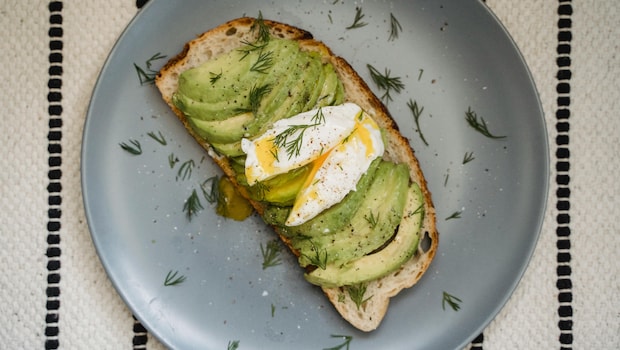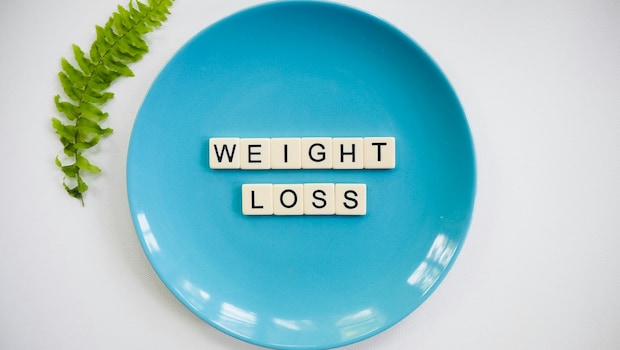Low-fat biscuits, fat-free yoghurt, skimmed milk - sound familiar? If you are trying to lose weight, chances are you have reached for these 'fat-free' snacks. For years, you may have believed that cutting fat is the golden ticket to weight loss. However, research suggests that eliminating fat completely might do more harm than good. Fat, particularly healthy fat, is essential for your body to function properly - from absorbing vitamins to supporting hormone production. Cutting it out entirely can lead to nutrient deficiencies, mood fluctuations, and even weight gain.
Before you put away your olive oil or avocado, it is important to separate fact from fiction. In this article, we break down the myths around low-fat foods, explain why healthy fats matter, and share practical ways to include the right fats in your diet.
Also Read: Intermittent Fasting Is Not The Only Way To Burn Fat. Try This Low-Carb Diet Instead
How The Low-Fat Craze Started?
The low-fat movement began in the 1980s, when saturated fats were linked to heart disease. This led to an explosion of fat-free products, many of which were loaded with sugar and additives to compensate for flavour. India also caught on, especially in urban households where ghee and mustard oil were replaced with modern low-fat cooking oils and dairy.
According to the University of Chicago Medicine, switching to low-fat products does not automatically improve health outcomes. Moderation, rather than elimination, often delivers better results. Full-fat foods, when consumed sensibly, can increase satiety and help absorb nutrients more effectively.
Also Read: 10 Low Calorie Foods That Can Speed Up Weight Loss

Photo Credit: Pexels
What A Low-Fat Diet Really Means?
Low-fat diets usually limit fat intake to less than 30 per cent of daily calories. The idea is simple: fat is calorie-dense, so eating less should help with weight loss. These diets generally focus on lean meats, beans, grains, fruits, vegetables, and low-fat dairy.
However, many processed low-fat foods are high in sugar, sodium, and refined carbohydrates, which can spike blood sugar, increase cravings, and sometimes lead to overeating. Studies from the National Institutes of Health show that low-fat diets do not always lead to long-term weight loss compared with low-carb or balanced diets. In some cases, these diets may even hinder overall health.
Why Your Body Needs Fat Even During Weight Loss?
Fat is not just a source of energy; it performs several vital functions:
- Absorbs Vitamins: Vitamins A, D, E, and K are fat-soluble. Without adequate fat, your body cannot absorb these essential nutrients properly.
- Supports Brain Health: Your brain is almost 60 per cent fat. Omega-3 fatty acids, found in fatty fish and flaxseeds, are critical for cognitive function.
- Regulates Hormones: Fats help in the production of hormones such as estrogen and testosterone.
- Keeps You Full: Healthy fats slow digestion, keeping you satisfied longer and reducing cravings.
- Improves Skin And Hair: Fats maintain cell membranes, ensuring your skin remains hydrated and your hair shiny.
Why Completely Can Cutting Fat Backfire?
Going ultra-low fat may seem like a shortcut, but it can have unintended consequences:
- Nutrient Deficiencies: Cutting fat aggressively can deprive your body of fat-soluble vitamins, affecting vision, bone health, immunity, and blood clotting.
- Increased Hunger And Cravings: Low-fat meals are often less satisfying, leading to overeating carbohydrates or processed snacks - a cycle that can undermine weight loss goals.
- Metabolic Impacts: Many low-fat products are high in sugar or starch to compensate for flavour. Over time, this can increase blood sugar fluctuations, reduce insulin sensitivity, and raise the risk of metabolic disorders.
Also Read: Keto Diet Vs Low-Fat Diet: Research Calls One Of Them Better For Weight Loss

Photo Credit: Pexels
Low-Fat Versus Low-Carb: Which Works Better?
The debate between low-fat and low-carb diets has been ongoing. NIH studies indicate that both can lead to weight loss, but low-carb diets often result in greater fat loss and better metabolic outcomes. Experts emphasise that low-fat diets may work for some individuals, but they are not universally effective. Personalisation, balance, and focusing on the type of fat consumed matter more than simply cutting fat entirely.
Practical Tips To Include Healthy Fats:
- Cook With Healthy Oils: Olive, sunflower, canola, and sesame oils are excellent for cooking or salads. They provide flavour, essential nutrients, and help keep you full.
- Include Nuts And Seeds: Almonds, walnuts, chia, and flax seeds are nutrient-dense and satisfying. A small handful each day supports satiety and heart health.
- Enjoy Fatty Fish: Salmon, sardines, and mackerel are rich in omega-3 fatty acids, which support brain function and reduce inflammation. Aim for two servings per week.
- Avocados And Nut Butters: These are versatile and nutrient packed. Spread avocado on toast or add a teaspoon of peanut or almond butter to smoothies.
- Balance Your Plate: Pair healthy fats with lean protein, vegetables, and whole grains. This combination slows digestion, helps control blood sugar, and reduces hunger.
Also Read: 7 Breakfast Ideas That Can Help You Lose Belly Fat
Healthy Fats In The Indian Diet:
Traditional Indian fat sources can be both nutritious and delicious.
Include More of These:
- Ghee (in moderation): Supports gut health with butyrate.
- Mustard Oil: High in omega-3s and antioxidants.
- Coconut Oil: Contains medium-chain triglycerides (MCTs) for energy.
- Nuts & Seeds: Almonds, walnuts, flaxseeds, chia seeds.
- Fatty Fish: Sardines, mackerel, salmon.
Limit These:
- Vanaspati: High in trans fats.
- Processed Snacks: Often labelled low-fat but high in sugar.
- Excess Full-Fat Dairy: Can raise LDL cholesterol if not balanced with fibre and antioxidants.
Common Myths About Low-Fat Foods:
Myth 1: Low-Fat Means Fewer Calories
Many low-fat foods contain added sugars or starches, increasing calories and spiking blood sugar.
Myth 2: All Fat Makes You Fat
Healthy fats can improve metabolism and satiety, helping you control overall calorie intake.
Myth 3: Low-Fat Diets Are Best for Heart Health
Reducing saturated and trans fats is important, but eliminating healthy fats can lower HDL cholesterol, harming heart health.
Myth 4: Skipping Fat Speeds Up Weight Loss
Temporary weight loss may occur, but low-fat diets often lead to cravings, nutrient deficiencies, and eventual weight regain.
How To Build A Balanced Plate?
1/2 Plate: Vegetables (raw, steamed, sauted)
1/4 Plate: Lean protein (dal, fish, tofu, chicken)
1/4 Plate: Whole grains (brown rice, millets, roti)
1 Tbsp: Healthy fat (ghee, mustard oil, nuts)
Bonus Tip: Reading Labels Wisely
- Check sugar and carbohydrate content beyond the low-fat claim.
- Avoid trans fats and partially hydrogenated oils.
- Prefer natural fats from nuts, seeds, avocado, and fish.
5 Healthy Fats To Include In Your Daily Diet:
- Almonds And Walnuts: Support heart and brain health.
- Avocado: Ideal for smoothies or toast.
- Olive Oil: Perfect For cooking or salad dressings.
- Fatty Fish: Salmon, sardines, mackerel.
- Ghee Or Mustard Oil: Use in moderation for traditional recipes.
Also Read: Best Morning Drink To Reduce Belly Fat Naturally: Apple Cider Vinegar (ACV) Or Lemon Water?

Photo Credit: Pexels
Final Thoughts: Fat Is Not The Enemy
It is time to stop fearing fat and start understanding it. The goal is not to eliminate fat but to choose the right kind. Drizzle olive oil, enjoy a spoonful of ghee, and snack on almonds, and your body will thank you.
Next time you see a low-fat label, check the sugar content. Smart fat always beats no fat when it comes to sustainable weight loss.
About Somdatta SahaExplorer- this is what Somdatta likes to call herself. Be it in terms of food, people or places, all she craves for is to know the unknown. A simple aglio olio pasta or daal-chawal and a good movie can make her day.







